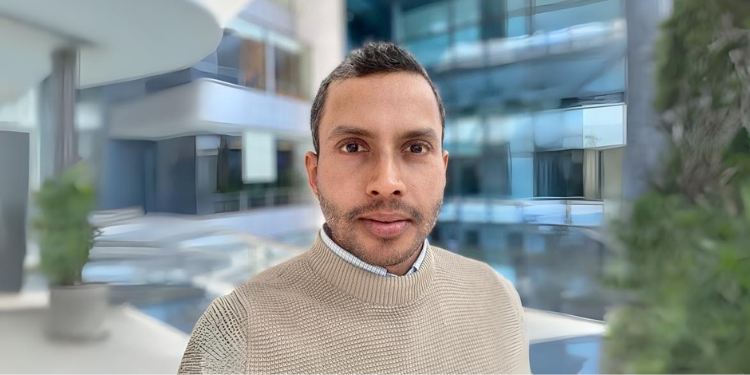I recently wrapped up watching “Boiling Point” on BBC Player on Prime Video Channels in India, and what really caught my attention was the diverse ethnic representation in the cast. Seeing faces from various racial backgrounds, including South Asian ones albeit British origin, was truly refreshing on international television. It made me think about how art imitates life, and indeed, life should be mirrored in art. Just take a stroll through the vibrant streets of London as I recently did, and you’ll see a beautiful mosaic of races on every corner, a testament to the rich multicultural society. Seeing this diversity represented on screen adds an extra layer of authenticity and relatability to the viewing experience.
There’s been a noticeable trend towards having a diverse cast in TV shows, regardless of the storyline. Recent popular period drama “Bridgerton” caught my attention as it boasted of its diversity, as it did to many; it spoke about the social season in the early 1800s where marriageable youth of nobility and gentry are launched into society. Set in the competitive world of the Regency era in London, we saw ‘colour’ splattered across the screen, quite literally breaking the stereotype of it being a ‘white man’s world.’ It was a moment that both surprised and comforted me, reminding me that story and art knows no race or cultural bounds. But let me clarify, this article isn’t just about hopping on the diversity bandwagon, it’s about celebrating representation in film and normalising the presence of talent from diverse backgrounds.
Content creators have truly embraced the colours of diversity in the content they produce, and there’s a growing portrayal of Indian and South Asian characters. I personally feel energised and connected when I see characters who reflect my own background in stories from around the world. Notable examples include “Never Have I Ever”, where characters like Devi Vishwakumar, portrayed by Maitreyi Ramakrishnan, have rightfully earned recognition. This casting not only offers visibility but also showcases strong, nuanced roles for South Asian actors. The series contributed to breaking Asian stereotypes in Hollywood. Then there is our very own “Doctor Who,” which has been a trailblazer to embracing diversity in all its forms and has featured Mandip Gill in her strong performance as the Doctor’s companion. Notably did you also know that the very first Doctor Who series was directed by an Indian: Waris Hussein. He was born in Lucknow, India, who then moved to England at a young age. Hussein’s contribution adds a fascinating layer to the show’s legacy. It’s a detail that fuels my Whovian imagination, envisioning this iconic cultural phenomenon starting with a director of Indian birth.
If you haven’t seen Sanjeev Bhaskar in “Unforgotten,” I highly recommend giving it a go on BBC Player. This BAFTA award-winning cold case crime drama follows seasoned London detectives as they unravel the truth behind tangled, complicated murders from the past. Sanjeev Bhaskar is also renowned for his performance in “Goodness Gracious Me,” a BBC sketch comedy show featuring a predominantly British Indian cast that was originally a BBC Radio show that was televised due to its success.
Another show that caught my attention is “This Is Going To Hurt,” featuring Golden Globe, Emmy, and BAFTA winner Ben Whishaw alongside Ambika Mod (also starring in ‘One Day’), who portrays a strong female character coping with her mental health. The series delves into the lives of junior doctors working in a National Health Service hospital, shedding light on the professional and personal challenges they face. And while we’re on the topic of mental health dramas, “Wakefield” is another intriguing show worth mentioning. Set in Australia’s Blue Mountains, it explores the thin line between sanity and madness through the staff and patients of a psychiatric hospital. Rudi Dharmalingam, of Sri Lankan heritage, delivers a compelling performance in the series, adding depth to the diverse cast. You may also recognise him from shows such as “The Cleaner,” “The Split,” “Casualty,” “Doctor Who,” “New Tricks” to list a few.
In an era of streaming services and global audiences, ethnic diversity isn’t just a moral imperative; it’s also good business. By embracing diversity, international content can attract a wider and more inclusive audience, tapping into the collective experiences and perspectives of viewers from all walks of life. This inclusivity fosters a sense of community and connection across borders and cultures.
Inclusive representation isn’t just about showcasing diversity; it’s about challenging stereotypes and prejudices, offering viewers a more nuanced and accurate portrayal of different cultures and identities. By dismantling stereotypes, these shows promote empathy and appreciation for the rich tapestry of human experience, fostering a more inclusive and tolerant society. And sometimes, a satirical take via comedy is all we need. I must give a shout-out to Adil Ray, the creator of “Citizen Khan,” a British sitcom that humorously captures the trials and tribulations of a self-appointed community leader and his family in Birmingham. It’s a delightful portrayal of South Asian diaspora life that resonates with south Asian audiences worldwide. If you have the Fear of Missing Out on not having seen it, you can do so on BBC Player.
Imagine flipping through channels or OTT platforms and stumbling upon characters who look like you, speak like you, and share your experiences. For many, this representation isn’t just entertainment; it’s empowerment. Seeing oneself reflected on screen can boost self-esteem, validate one’s identity, and reaffirm a sense of belonging in a world that often feels indifferent even though connected. It’s a powerful reminder that everyone’s stories matter and that our voices deserve to be heard.
In today’s interconnected world, content has the power to mirror the rich tapestry of our society, celebrating the diversity and multiculturalism that define us. BBC drama and comedy shows are a part of this movement, reflecting the real world with characters who come from all walks of life. So, let’s continue to champion diversity, because when we see ourselves on screen, we know that our stories are being heard, and we matter.
Authored by Stanley Fernandes, Vice President Distribution, BBC Studios South Asia

















